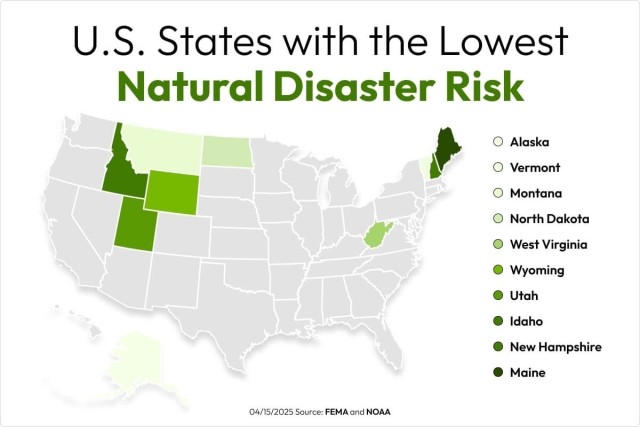Your rent payment is likely the largest bill you pay every month. But how much do you understand your rent? Do you ever wonder how your rent was determined? Perhaps you aren’t sure of the best way to pay rent. Could your rent be raised mid-lease? (Probably not, but we’ll get to that.)
Rent is a major factor when choosing a place to live. In fact, in a recent survey of more than 370,000 renters, 70 percent of renters said the rental rate was the most important factor when choosing an apartment community, just behind location at 75 percent.
The cost of rent is trending up, as well. A study by Harvard University found that rent prices rose 150 percent between 2010 and the third quarter of 2019, and while the trend is slowing down, rent prices are still high.
Different Ways to Pay Rent
Here’s a surprising fact about rent: only seven percent of renters pay rent by check. Most choose to pay by debit or credit card, and 21 percent had no preference as long as the system of payment was automated. That means most people pay their rent online. But before we explore online payments, here’s a breakdown of the other ways people pay, along with the benefits and drawbacks of each method:
Rent payments by paper check
What was once the only way to pay (other than cash) is now the least used method. In fact, only seven percent of those surveyed said they pay rent by check.
Some of the benefits of paying by check include the ability to postdate the check and having proof of payment once the check is cashed by your bank. But, writing a check out every month has its drawbacks. It could get lost in the mail or the landlord might misplace your check. If this happens, you’ll have to stop payment on the check and write a new one.
Paying by check is less secure than other methods of payment because it has everything on it: your full name, address, bank information, and your signature. If you hand-deliver your check to the front office or to your landlord every month, this is fine. If you mail it, there is a slight chance that it could end up lost or in the wrong hands. If you send a check by mail, don’t leave it in an unlocked mailbox. Take it to the post office or put it in a postal service mailbox.
A great alternative to paying with a paper check is paying with an electronic check, or eCheck. An eCheck is a digital version of your paper check that uses ACH (Automated Clearing House) to transfer funds instead of card networks, either lowering or eliminating the interchange fees typically associated with paying by credit card.
App-based rent payments
Popular payment apps make it easy to send payments to anyone, so it isn’t surprising that 12 percent of renters are using them to pay rent. These apps are usually connected to your bank account or to a credit card. The benefits of paying through an app-based system is convenience. However, there are fees attached to many of these apps, so you’ll end up paying a few dollars more for the convenience. Some of the apps send the money instantly, meaning you can’t cancel the payment if you made a mistake.
Paying rent with a debit card
Most renters are paying their rent with a debit card, with 36 percent choosing this method. Using a debit card, most often through an automated system, is quick and easy. The money comes directly from your checking account, so you won’t have to worry about interest or fees. You can even set this payment up to debit automatically from your account every month.
Paying rent with a credit card
Of those surveyed, 24 percent prefer to pay rent with a credit card. The benefits to paying with a credit card is the money is applied to your credit balance rather than being deducted from your checking account. However, you run the risk of having interest added to that amount if you don’t pay your credit card bill in full each month.
What to Know About Paying Rent Online
Roughly 80 percent of respondents say they prefer to pay rent with a debit or credit card online. First, paying rent online is relatively safe and convenient. In most cases, it’s considered safer than paying by check. When making an online rent payment, make sure the website you use begins with “HTTPS.” The “S” on the end lets you know that your information will be encrypted.
If you are paying rent through Apartments.com, you’ll receive an invitation from your landlord via email. The invitation will provide instructions on how to set up your payments through your preferred payment method. You can also set up recurring payments to make things easier.
Once you're set up, you can pay rent by credit card, bank transfer, Google Pay, or Apple Pay. Apple Pay, which is available for Safari version 17+ on iOS or macOS devices, adds additional personal data protection from Apple.
What to Do If you Can't Pay Your Rent
Sometimes, things happen that are out of your control. A job loss, an illness, or, well, a global pandemic that results in one or both of those things, leaves you without the necessary resources to pay your rent. What are your options?
First, check your lease and read over the rent section to see whether you have a grace period and what the late fee might be. Your lease may also lay out options for instances when you can’t pay the rent.
Next, contact your landlord and see if you can work something out. Be honest and direct about the situation. Your landlord might be willing to work with you to establish a payment plan, accept a partial payment, or waive a late fee. You could also consider getting a roommate to help share the costs, or you could move to a less expensive unit. Discuss these things with your landlord and see what they are agreeable to. Most often, if you have been a renter with a history of paying consistently, your landlord might prefer to work with you and keep you as a tenant rather than having to re-rent the space. Make sure you get any agreement in writing.
United Way’s 211.org is terrific resource for anyone struggling with essential needs like housing expenses. The website can help you find resources available in your community. HUD also offers some great resources for renters who might be struggling with rent.
When Is Rent Considered Received?
If you pay in person, then your rent is considered received when it’s in your landlord’s office. If you pay by cash, make sure you get a receipt.
If you send a check through the mail, the rent is received when your landlord gets it — not by the postmark. Make sure you take into account the amount of time it will take for your payment to get to your landlord.
When paying online, you’ll get an email confirmation showing proof of payment. When paying rent through Apartments.com, you’ll see the status change from “scheduled” to “in progress,” and it will show when the landlord will receive your payment. If you go to Renter Tools and look at the Payments tab, you’ll see an estimated arrival date. Be aware that ACH payments take about five business days to post to your landlord’s bank.
When Is Rent Considered Late?
You lease agreement should state the day on which rent is due. If there is a grace period, that will also be stated in your lease agreement. While some landlords offer a grace period, others don’t. Make sure you read your lease agreement to see what your apartment community’s or landlord’s policy is. A grace period is a short time after the rent due date that is given before a late fee is assessed. But even if the rent is due on the first and you have a five-day grace period, the rent is still due on the first — not the fifth.
Some states provide a mandatory grace period before rent is considered late. If you aren’t sure what is required where you live, be sure to research your state and local laws. For example, in New Jersey, the rent grace period is five business days. In Vermont, the state Supreme Court ruled that late fees can’t be charged as penalties, but there’s no established grace period.
How Are Rent Prices Calculated?
For large apartment communities, rent is typically determined by a software program that calculates a price based on square footage, the number of bedrooms, market conditions, competitor rates, and current occupancy. Because software has become increasingly sophisticated, these programs can be run daily, which is why you might see rent prices fluctuate often.
Private landlords (those with a house for rent or a smaller apartment building) will often determine rent by studying rent comps. Rent comps compare similar-sized rentals in the same neighborhood, taking into account the number of bedrooms, type of property, amenities available, and other factors such as parking and location.
Many landlords are willing to negotiate the rent, so don’t hesitate to broach the subject. Simply ask the landlord if they are open to negotiating the rent price. If they are, consider offering some concessions of your own in return, such as signing a longer lease, paying a higher security deposit, or offering to end the lease at an optimal time, such as at the beginning of summer.
Is My Rent Too High?
If you feel as though you are paying more for rent now than ever before, you’re probably right. Today, the average rent in the United States is $1,499 per month. To put that in perspective, let's take a brief trip through time to look at how rent prices have changed in modern history:
- From the 1960s to the 1970s: Rent rose from $71 to $108 per month, marking a 52% increase. This period was impacted by high inflation, affecting the overall economy and housing costs.
- From the 1970s to the 1980s: The average rent surged to $308, reflecting a substantial 185% increase. Economic deregulation and a shift towards service industries influenced this dramatic rise.
- From the 1980s to the 1990s: Rent prices grew to $447, a 45% increase. This growth continued against a backdrop of economic expansion and the burgeoning tech industry.
- From the 1990s to the early 2000s: The average monthly rent reached $602, up by 35%. This era enjoyed relative stability and benefited from low interest rates.
- From the early 2000s to the early 2010s: Rent prices climbed to $1,083, showing an 80% jump. The recovery from the 2008 financial crisis and a tight housing supply contributed to this significant increase.
- From the early 2010s to today: Today's average rent of $1,499 represents a 38% increase from the early 2010s. The ongoing challenges of housing affordability and a dynamic market have driven this recent growth.
If you think you might be paying too much for rent, be sure to check the average rent in your city. Remember: you need to compare apples to apples. In other words, look at apartments most like yours: in the same area, with the same square footage and number of bedrooms, and with similar features and amenities.
A simple way to check for rent prices is by looking up your city on Apartments.com. Simply type your city in the search box on the US Rent Trends page.
Rent Increase Notices and What to Consider
Your landlord may send you a rent increase notice when it comes time to renew your lease. This should arrive in the form of a letter. In most states, a rent increase notice needs to be in writing for it to be legal.
Typically, the landlord can’t raise your rent in the middle of your lease. Most states have some laws around rent increases, so be sure to check. For example, in New Jersey, a landlord must give notice of a rent increase at least 30 days in advance. In Maine, landlords are required to give 45 days’ written notice. If you live in Delaware, the landlord needs to give you 60 days’ notice of a rent increase.
When you get a rent increase notice, you’ll have to determine whether to stay and renew your lease at the higher rate or send your landlord a notice to vacate letter. Check your lease to see how many days’ notice you’re required to give the landlord when moving out. The lease should also explain how to give notice.
Understanding your rent — from the initial negotiation to paying online to rent increases — will help you plan your budget, decide if you are paying too much, and help you determine when it is time to move. If you still have questions about your rent, be sure to ask your landlord and do research into your state and local laws.






